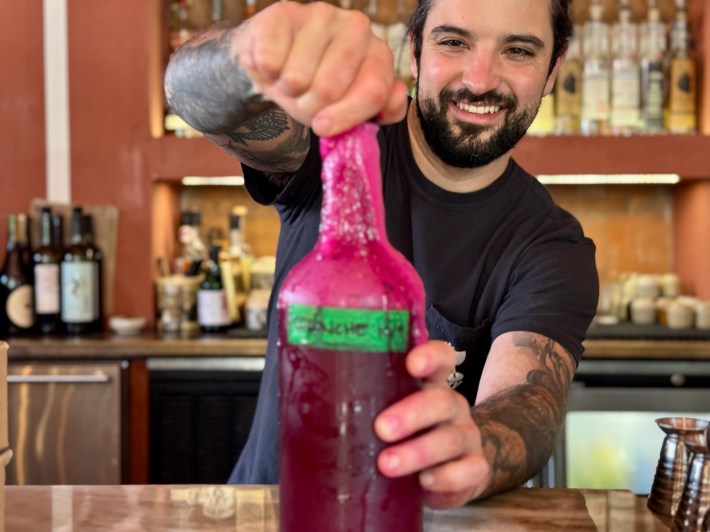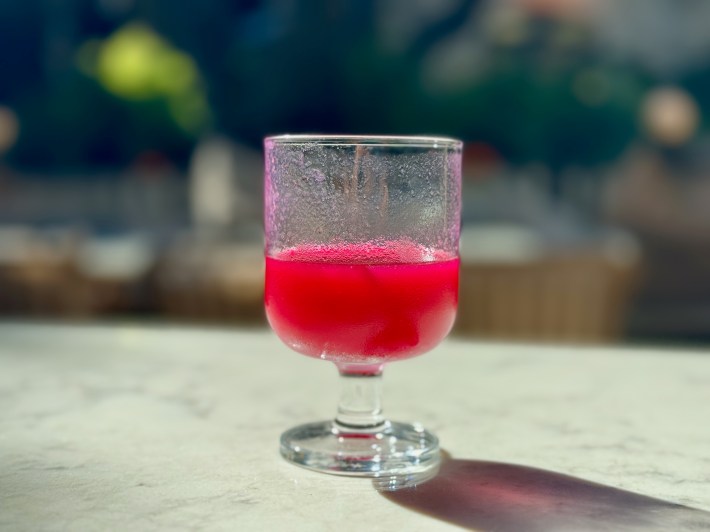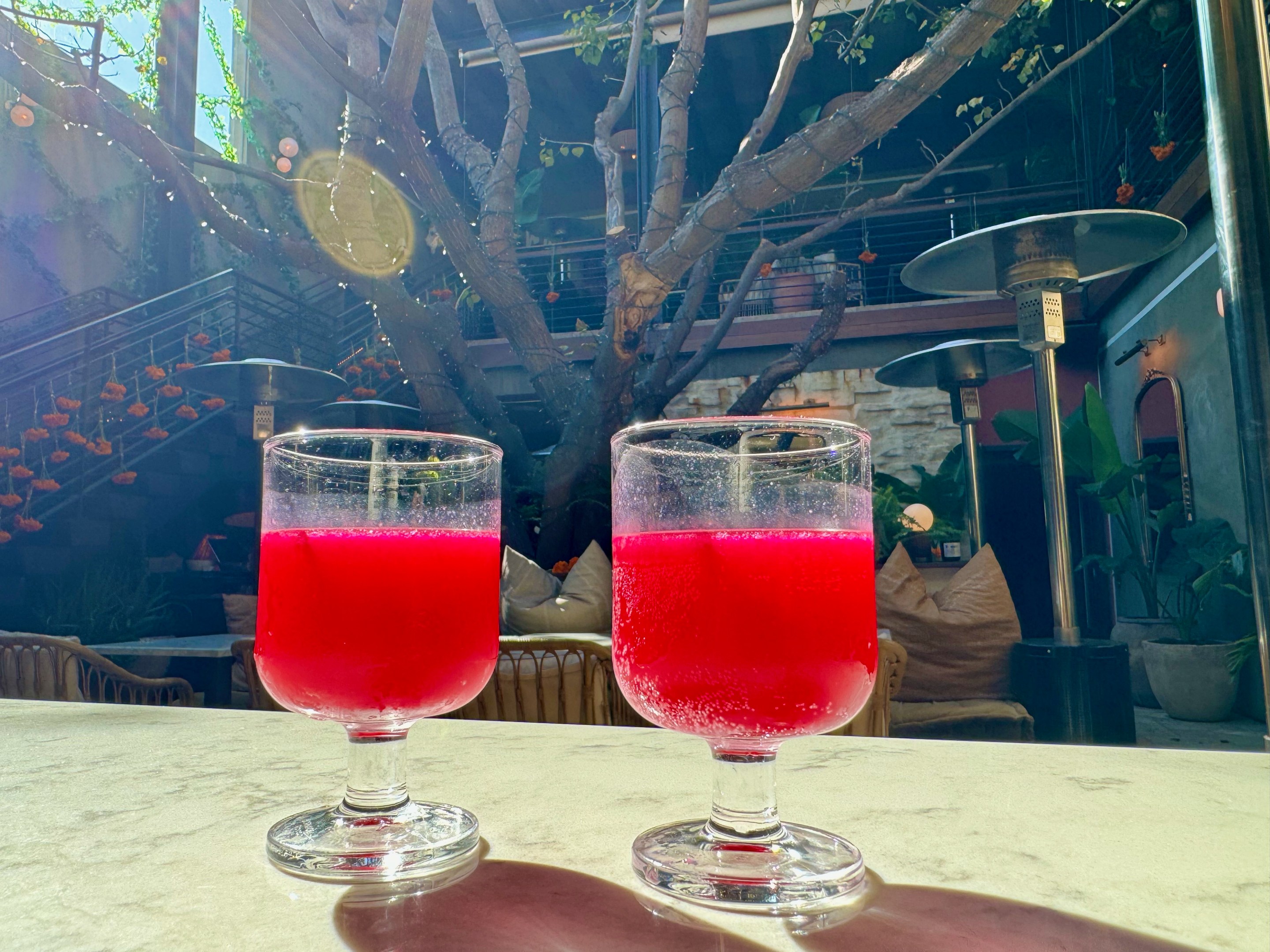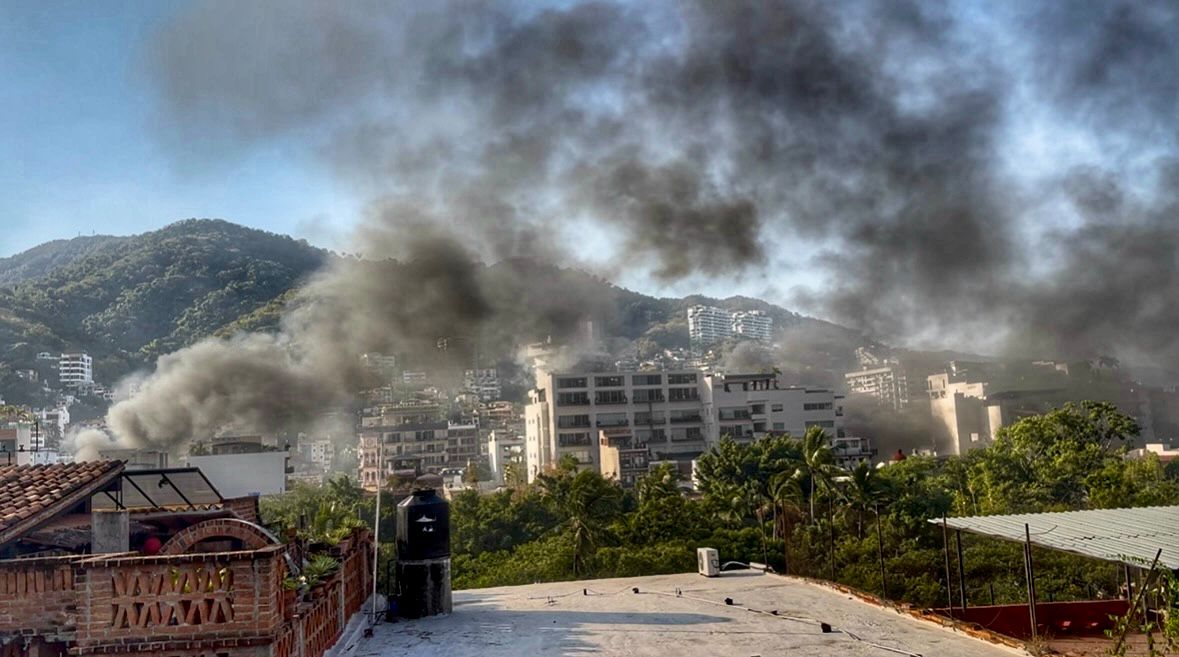In the race to commodify traditional Mexican beverages for the U.S. market, from bottled aguas frescas to carbonated tepaches, there is one regional libation that most self-professed Mexican drinks nerds have yet to try to scale up: colonche.
It’s a lightly alcoholic pre-conquest beverage of Indigenous origin, made from fermenting the crimson red fruit that grows out of nopal paddles. Its roots go back to Mexico, pre-European conquest.
Even in the Mexico of today, it’s hard to find this 2,000-year-old beverage outside the two states where it originated: Zacatecas and San Luis Potosí, which also happen to be Mexico’s top cactus producers for national and export consumption, which coincide with the top production of tunas (cactus fruit), too.
But if colonche goes the way of pulque, tepache, and tejuino, we are only starting to see the beginning of its effervescent mainstreaming. Unlike its fermented cousins, colonche has two things going for it that the others don't: a stunningly opaque, hot pink color that is naturally occurring without artificial dyes, and a pleasant, lightly sweet flavor to back up its good looks.

The ABV is like any other fruit-fermented beverage, hovering around the 2-3% mark. The flavor is extremely refreshing, semi-sweet, tropical-leaning, and tangy at first. But it finishes dry.
The light, alluring, cactus-derived drink has been the muse of both Maxwell “Beer Ghost” Reis and Giovanni “Brewjo” Martinez, the two beverage nerds behind the bar at Mírate in Los Feliz. They are the first to offer the beverage on a menu in a Mexican restaurant in Los Angeles.
The two have been experimenting with several batches and styles of colonche, mostly in the Zacatecan tradition. That means it contains nothing but liquefied tunas, sometimes with a bit of added sugar and other times just with the fruit alone.
Brewjo, whose family is from Veracruz, takes the process one step further into the mystical realm, blessing each fermentation vessel with palo santo before starting a new batch. He also had the idea of adding the tuna peels as the liquid ferments, so that the colonche ferments with its own yeast (combined with ambient yeast from the restaurant’s own natural air).
As the temperature starts to drop, both are looking forward to dabbling with the San Luis Potosí-style of making colonche, which emphasizes the addition of spices like cinnamon sticks as it ferments.

“At the end of the day, does smoking it with palo santo do a lot? Who knows. But it’s horrifically romantic, which means a lot to us when creating this special beverage,” Reis tells L.A. TACO on a recent Wednesday afternoon.
He takes out his latest batch of colonche in a glass bottle, a batch that uses cooked fruit instead of raw fruit. The thick, burgundy-colored liquid is pressurized inside, causing it to burst out as soon as you open. Similar to the classic elementary school experiment where baking soda and vinegar are mixed to create a controlled, foamy overflow from a papier-mâché volcano.
“It’s alive,” jokes Martinez.
To get the average Los Feliz customer to care about colonche, Reis first resorted to offering it as a complementary aperitivo-type beverage to each customer before their food arrived, hoping that tasting just a few ounces would result in a full $6 order. That plan didn’t work out, so he quickly pivoted to resorting to shaking a margarita with it, which worked instantly.
Mirate’s colonche margarita is now one of their most-ordered cocktails, mostly due to its head-turning, high saturation of pink, and extremely sippable Cascahuin blanco tequila.
“As much as I resisted putting colonche in a margarita, it’s a really effective way to introduce a new alcohol to an American market, says Reis.”
Seeing the complete gringo-fication of colonche in Los Feliz might annoy some, but when you find out that this beverage almost went extinct, we’ll take a hot pink margarita over a dead beverage lost in time any day. It takes a well-versed forward restaurant like Mírate willing to reach deeply into Mexican gastronomy to be able to be one of the first to do it.
Cactus fruit season finishes at the end of October, but Reis and Martinez are already vacuum-sealing tuna peels for the future fermentation of nixtamal-based tejuino and other fermented beverages in the fall. Reis also has a secret pulque connect, which he is hyper-fermenting into a vinegar for Mirate chef Josh Gil to cure fish with in a ceviche.
“Who knows, in four years, if colonche makes it big, like how tepache is making it big right now in the U.S. and pulque’s comeback in Mexico, at least customers will be able to say, ‘Oh yeah, I remember when I first had it at Mírate,’” says Reis.
1712 N Vermont Ave. Los Angeles, CA 90027. Closest Metro lines and stop: Metro B Line - "Vermont/Sunset Station", Bus Lines 180, 206, and 217 - "Hollywood/New Hampshire", Bus Lines 204 and 754 - "Vermont/Hollywood."






